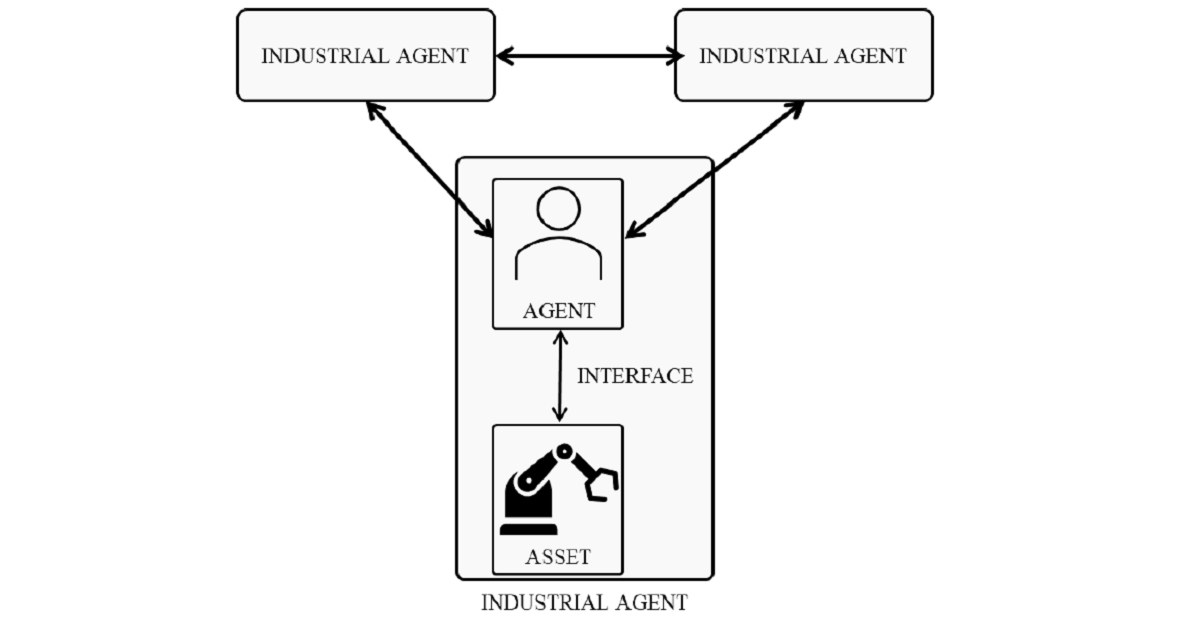Industrial Agents: Recent Advances and Future Challenges
A special issue of Applied Sciences (ISSN 2076-3417). This special issue belongs to the section "Applied Industrial Technologies".
Deadline for manuscript submissions: 10 November 2024 | Viewed by 1325

Special Issue Editors
Interests: smart manufacturing; automation systems; multi-agent systems; application orchestration
Special Issues, Collections and Topics in MDPI journals
Special Issue Information
Dear Colleagues,
Industrial agents play key roles in the realization of the fourth industrial revolution, or industry 4.0, by enabling the development of industrial cyber–physical systems (ICPSs). Industrial agents possess all the capabilities and features of multi-agent systems or MAS (the flexibility and ability to make decisions autonomously, enabling competition and/or collaboration with each other to achieve their objectives), enhanced with the ability to integrate and manage factory assets such as robots or PLCs. This way, the industrial agents paradigm extends and particularizes the requirements and characteristics of MAS to the manufacturing domain, supported by recently published standards such as IEEE 2660.1 and VDI 2653.
The purpose of this Special Issue is to promote and collate the efforts that are currently underwat in the development of ICPSs based on the paradigm of industrial agents. In this way, this Special Issue intends to cover both the resolution of technical problems by using industrial agents and their applicability to develop solutions compliant to the main reference architectures for industry 4.0, such as the reference architectural model industrie 4.0 (RAMI) 4.0 and the industrial internet reference architecture (IIRA).
Dr. Oskar Casquero
Dr. Aintzane Armentia
Guest Editors
Manuscript Submission Information
Manuscripts should be submitted online at www.mdpi.com by registering and logging in to this website. Once you are registered, click here to go to the submission form. Manuscripts can be submitted until the deadline. All submissions that pass pre-check are peer-reviewed. Accepted papers will be published continuously in the journal (as soon as accepted) and will be listed together on the special issue website. Research articles, review articles as well as short communications are invited. For planned papers, a title and short abstract (about 100 words) can be sent to the Editorial Office for announcement on this website.
Submitted manuscripts should not have been published previously, nor be under consideration for publication elsewhere (except conference proceedings papers). All manuscripts are thoroughly refereed through a single-blind peer-review process. A guide for authors and other relevant information for submission of manuscripts is available on the Instructions for Authors page. Applied Sciences is an international peer-reviewed open access semimonthly journal published by MDPI.
Please visit the Instructions for Authors page before submitting a manuscript. The Article Processing Charge (APC) for publication in this open access journal is 2400 CHF (Swiss Francs). Submitted papers should be well formatted and use good English. Authors may use MDPI's English editing service prior to publication or during author revisions.
Keywords
- industrial agents
- industrial cyber–physical systems
- fourth industrial revolution
- industry 4.0
- IEEE 2660.1
- VDI 2653
- reference architectural model industrie 4.0 (RAMI 4.0)
- industrial internet reference architecture (IIRA)
Benefits of Publishing in a Special Issue
- Ease of navigation: Grouping papers by topic helps scholars navigate broad scope journals more efficiently.
- Greater discoverability: Special Issues support the reach and impact of scientific research. Articles in Special Issues are more discoverable and cited more frequently.
- Expansion of research network: Special Issues facilitate connections among authors, fostering scientific collaborations.
- External promotion: Articles in Special Issues are often promoted through the journal's social media, increasing their visibility.
- e-Book format: Special Issues with more than 10 articles can be published as dedicated e-books, ensuring wide and rapid dissemination.
Further information on MDPI's Special Issue polices can be found here.






